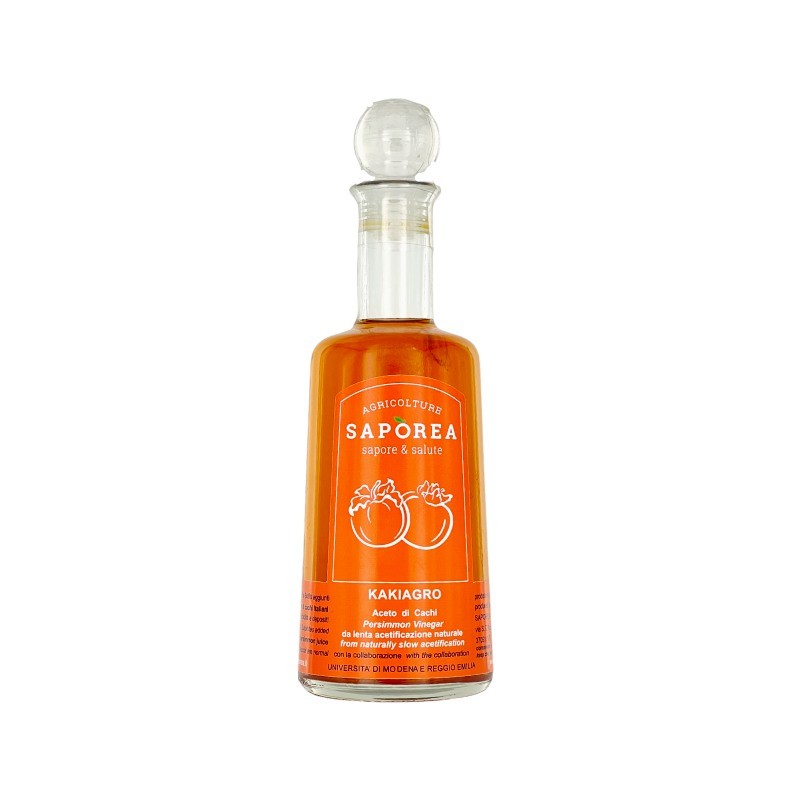


Persimmon vinegar from the Veronese plain, produced using the method of slow spontaneous acidification.
It is neither pasteurised nor microfiltrated and does not contain sulphites.
Finalist at the Oscars Green in the 2018 edition of Coldiretti.
Kaki Vinegar
Kaki vinegar has been produced in the mountains of northern China since time immemorial and is now a Slow Food Ark of Taste product. It was presented to an emperor of the Song dynasty, who loved it so much that it has been regarded ever since as a tribute to the emperor or a particularly popular gift for dignitaries of the time.
It may interest you
Khaki vinegar is a real secret ingredient when it comes to creating irresistible sauces. Thanks to its sweet, fruity flavour, this vinegar gives sauces a unique touch that makes them really special. One of the most popular recipes is Kaki and Ginger Sauce, which is perfect with meat or fish dishes. Simply mix kaki vinegar with grated ginger, garlic, olive oil and a pinch of salt and pepper. This sauce gives a fresh, spicy flavour that is perfect with a variety of dishes. Another delicious option is kaki and honey sauce, which is perfect for dressing salads or seasoning grilled vegetables. Mixing kaki vinegar with honey, lemon juice and sunflower oil creates a sweet and sour sauce that will make your dishes truly unique. Experiment with kaki vinegar and be surprised by its versatility in the kitchen.
Khaki vinegar is rich in umami, considered the 5th taste, a primary taste that joins the other four: salty, sweet, bitter and sour. Discovered by a Japanese doctor in 1909, umami can be thought of as the 'good' taste, the one that makes you want to take another bite of the food that contains it.
The sweetness of the fruit is the basis of the taste of Kaki vinegar, the acidity is not sharp, the smell is sweet and persuasive. Eastern cuisine makes great use of Kaki vinegar, it is used on fish or in salads to give a light fruity flavour.
Perfect for seasoning rice for sushi or pickles or in marinated vegetables.